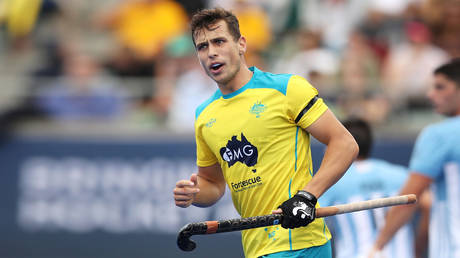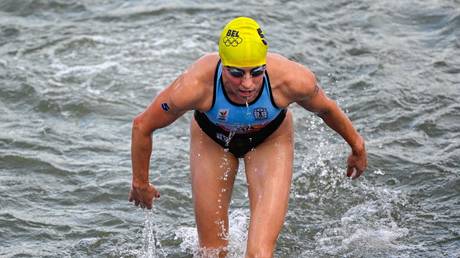Olympian Ordure: Swimming and Shitting in the Seine

Swimming, or dipping, in faecal polluted waters is not unusual. The spirit longs for purity in the staining aqua, and the body keeps pace with it. The Ganges, for instance, features sacred rites and ceremonies defiant of science. In an aqueous body of lingering corpses, thickening pollutants and full flowing faeces, foolhardy believers can find spirituality.
Such foolhardiness has also found itself in Paris 2024, the occasion of the XXXIII Summer Olympiad. Since 1923, the River Seine’s toxicity had become the stuff of legend. Over five decades, the famous river received untreated sewage.
With the award of the Olympics came the intention to feature the Seine in various sporting events. No less than €1.4 billion was spent on cleaning the river, a project underway since 2015. There was much exaggerated nonsense coming from Paris deputy mayor Emmanuel Gregoire, who told Time that, “Swimming at the root of the Eiffel Tower will be very romantic.”
In May, the city’s officials, including the president of the Paris 2024 organising committee, Tony Estanguet, opened an underground water storage facility intended to collect residual and access rainwater and halt untreated wastewater from entering the Seine. The structure, known as the Bassin d’Austerlitz, took 42 months to build at the cost of €90 million, with a storage capacity of 50,000 cubic metres.
There has been a procession of volunteers wishing to take to the Seine’s waters, if only to prove the point that it is sanitary. President Emmanuel Macron promised that he would “do it, but I won’t give you the date.”
French Sports Minister Amélie Oudéa-Castéra, rarely resisting a chance for gratuitous publicity, was less cautious, clumsily taking the plunge. Then came the city’s mayor, Anne Hidalgo, who similarly made good her promise. (The occasion had been delayed by the sudden call for parliamentary elections.) “The Seine is exquisite,” she felt programmed to say. On emerging from the river, she professed to finding the water “very, very good. A little cool, but not so bad.”
Whatever exquisiteness Hidalgo might have detected, the data from Paris examined by POLITICO between June 3 and July 23 revealed concentrations of E. coli bacteria in excess of European safety standards for more than half the days surveyed.
The European branch of the Surfrider Foundation had also busied itself with testing water quality over the course of six months, paying special attention to the presence of E. coli and enterococci. In April, it issued a grave warning:
“Of the 14 samples taken, whether after heavy rain or on a sunny day, only 1 enabled our team to conclude that the quality of the water in the Seine at this particular point was even satisfactory.”
Participating athletes would “be swimming in polluted water and taking significant risks to their health.”
The sceptics have certainly been out in force. Many found themselves agitatedly grouped in a movement that came to be called, “Je Chie Dans La Seine Le 23 Juin”, the original date of Hidalgo’s Seine venture. The meaning had the true freshness of resistant ordure: “I shit in the Seine on 23rd June.” Some duly obliged.
Whatever the safety issues of this curving body of water banked by cultural monuments, the Seine featured as a vital prop to the event’s opening, marked by its murky and brooding flow, barges, discordant performances and enthusiastic athletes braying, cheering and crowing. But the organisers had not anticipated the extent of the downpour. Therein began the headaches.
On July 30, three hours before the Olympic triathlon’s first leg, intended to feature 1,500 metres of swimming, the World Triathlon announced that the men’s trial had been postponed till July 31. The decision to do so was made following a meeting “on water quality” held at 3.30am. “The tests carried out in the Seine today revealed water quality levels that did not provide sufficient guarantees to allow the event to be held.”
Two previous training sessions had also been cancelled for the same reasons. Despite those cancellations, the Organising Committee CEO Étienne Thobois was unjustifiably optimistic in claiming that events could be held on Tuesday.
“The required flow of the river of one cubic metre per second has been met and we don’t have an issue.”
Belgium’s Marten Van Riel, ranked fourth in the men’s triathlon at the Tokyo Olympics, was less impressed.
“Changing the day like that in the middle of the night is disrespectful to the years of preparation of the athletes and to all (y)our fans that were going to watch live or on TV,” he vented on Instagram.
His fellow athletes are also taking few chances with the promises of officialdom, ingesting an increased amount of probiotics and refusing to wash hands after toilet sessions in an effort to improve immunity. But as Bill Sullivan of the Indiana University School of Medicine observes with sagacious relevance, “in the Olympics between humans and germs, the germs usually win.”
*
Click the share button below to email/forward this article to your friends and colleagues. Follow us on Instagram and Twitter and subscribe to our Telegram Channel. Feel free to repost and share widely Global Research articles.
Spread the Truth, Refer a Friend to Global Research
Dr. Binoy Kampmark was a Commonwealth Scholar at Selwyn College, Cambridge. He currently lectures at RMIT University. He is a Research Associate of the Centre for Research on Globalization (CRG). Email: [email protected]
Featured image: The Seine and Eiffel Tower (Licensed under CC BY-SA 3.0)



